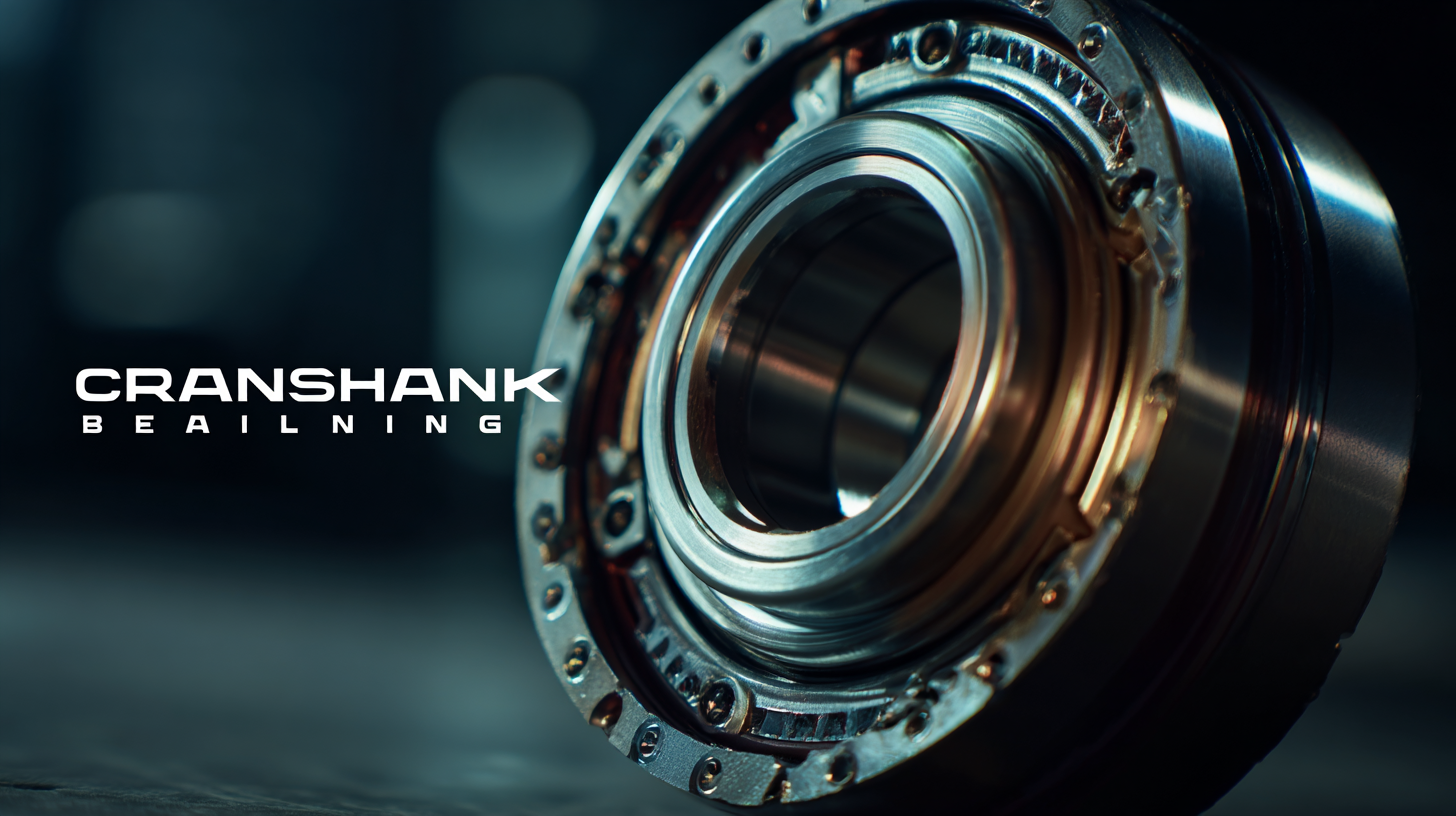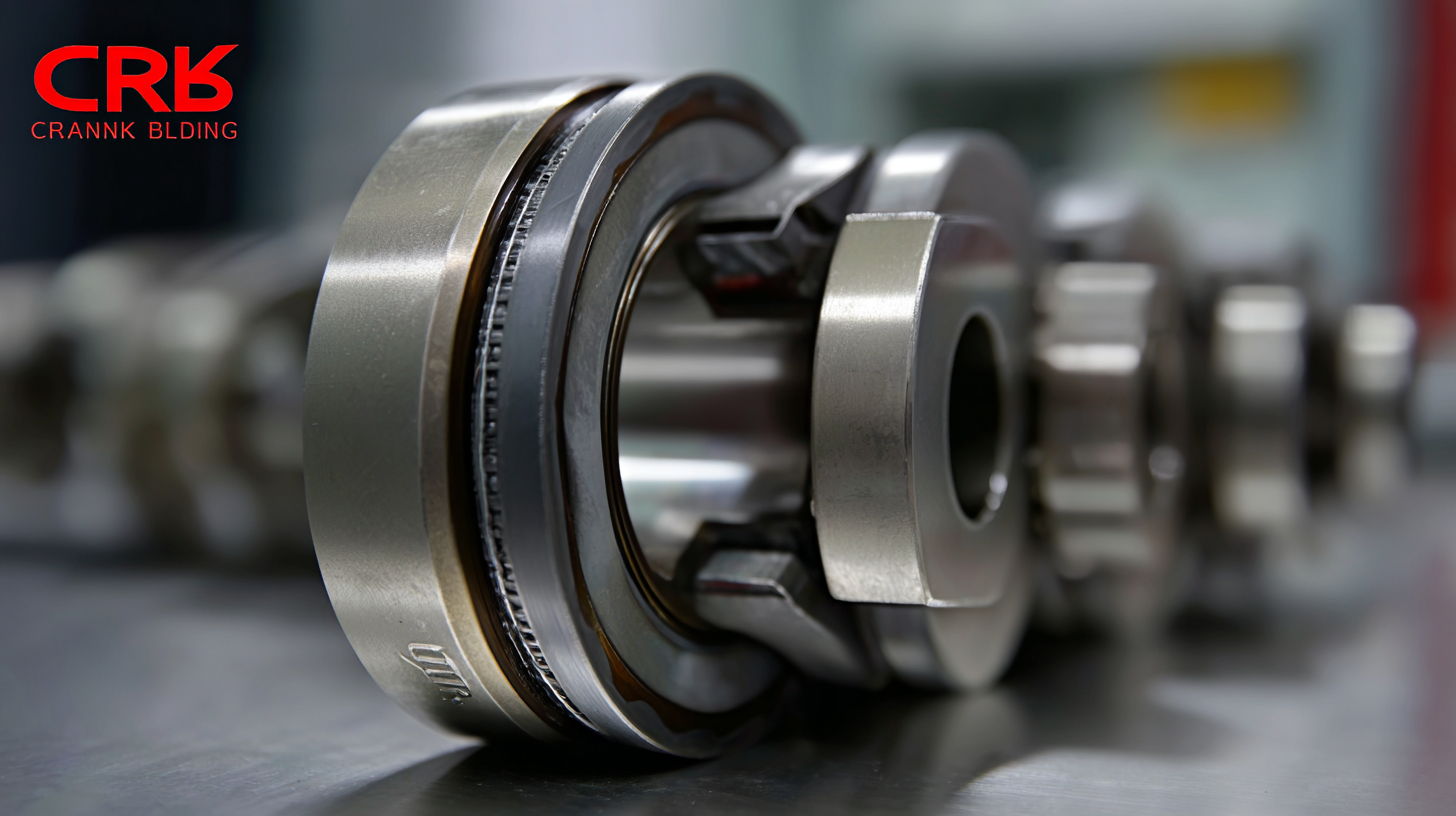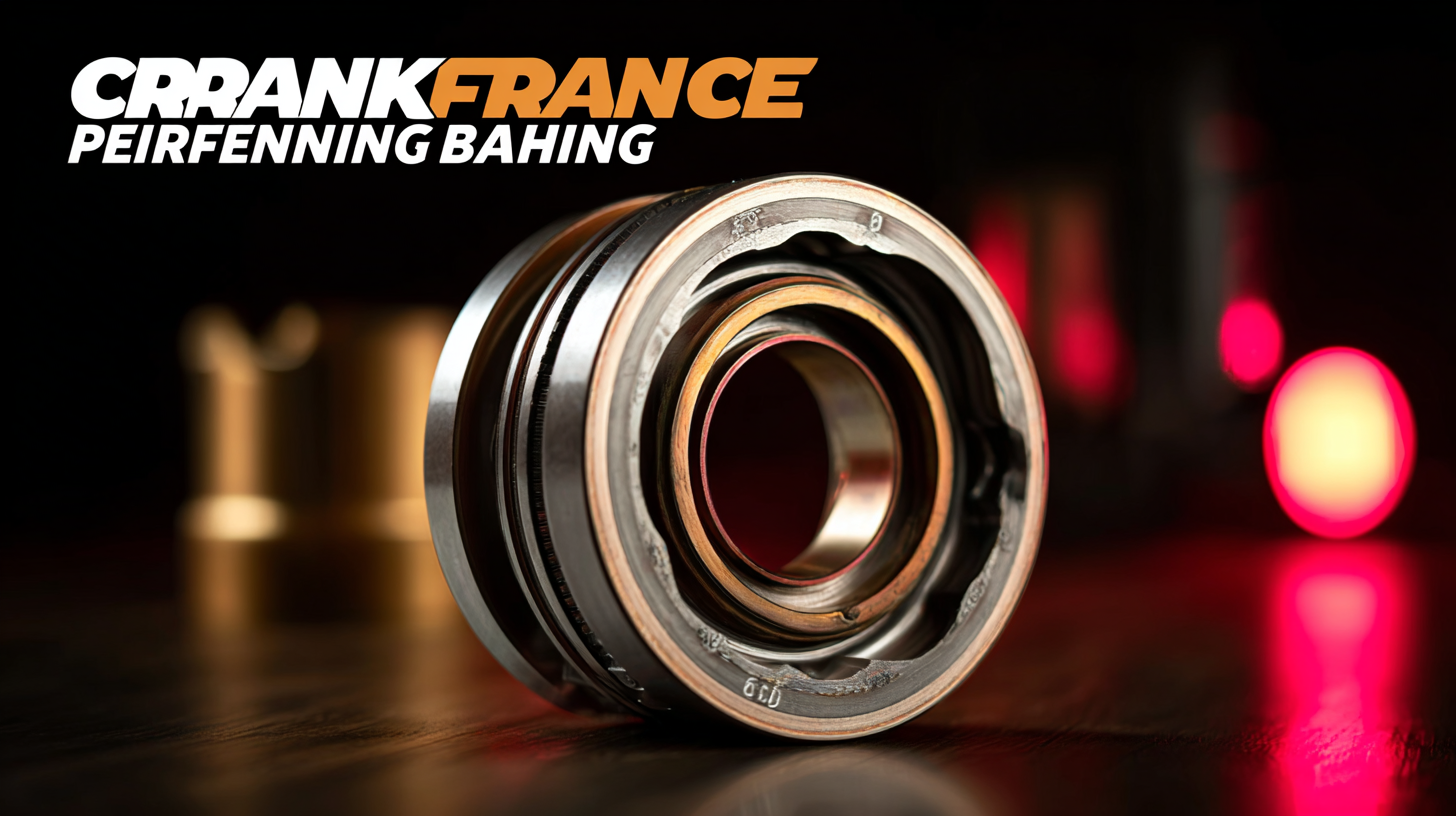 +86 13794985240
+86 13794985240
Leave Your Message
-
 CONTACT NUMBER
CONTACT NUMBER -
 CONTACT NUMBER
CONTACT NUMBER -
 CONTACT NUMBER
CONTACT NUMBER



In the world of engine performance, the significance of selecting the optimal crankshaft bearing cannot be overstated, as it serves as a critical component in ensuring smooth operation and longevity. According to a recent report by the International Journal of Engine Research, improper bearing selection can lead to a staggering 45% increase in engine wear and a 30% decrease in overall efficiency. Moreover, advancements in materials and engineering have shown that high-quality crankshaft bearings can enhance load capacity by up to 50%, thereby reducing the risk of failure and extending engine life. As the automotive industry increasingly prioritizes durability and performance, understanding the advantages of the best crankshaft bearings becomes essential for both manufacturers and enthusiasts striving for superior engine output and reliability.

When it comes to engine performance, selecting the right crankshaft bearings is crucial. These components play a vital role in ensuring that critical engine parts work seamlessly together under pressure. Properly designed crankshaft bearings can handle harsh conditions, maintain lubrication, and reduce friction, which ultimately enhances engine efficiency. The advancements in bearing technology, such as those that simplify installation and prevent misuse, have made it easier for enthusiasts and mechanics to support performance-driven engines effectively.
Specific characteristics set the best crankshaft bearings apart from the rest. For instance, materials that resist wear and temperature fluctuations are essential for maintaining durability under high-stress conditions. Features like clearance design and surface finish are also paramount, as they dictate how well the bearings interact with the crankshaft and other components. High-quality bearings minimize the risk of engine failure and extend the lifespan of engine internals, making them a smart investment for both everyday drivers and performance cars alike. As automotive technology continues to evolve, understanding these key characteristics will empower engine builders and restorers in their quest for optimal performance.
In the pursuit of quality and reliability for engine performance, evaluating supplier certifications becomes a critical aspect. Certifications serve as a benchmark for assessing the credibility of suppliers, ensuring they meet industry standards and possess the necessary expertise. For instance, recent achievements, such as Aero Norway obtaining AS9110 certification, highlight the importance of rigorous processes and evaluations within the aerospace sector. Such standards provide assurance that repair facilities, and by extension their component suppliers, adhere to stringent operational protocols.
This attention to supplier certifications is particularly crucial amidst growing challenges within various industries, including automotive and aerospace. The current landscape, marred by production halts and supply chain complications, underscores the value of utilizing certified suppliers to mitigate risks associated with compromised quality. By prioritizing suppliers with recognized certifications, companies can enhance their operational efficiency and ensure that their engine components, like crankshaft bearings, are sourced from reliable manufacturers, ultimately unlocking improved engine performance and longevity.
| Bearing Type | Supplier Certification | Material | Load Rating (kg) | Max Temperature (°C) | Durability (hours) |
|---|---|---|---|---|---|
| Main Bearing | ISO 9001 | Aluminum Alloy | 800 | 150 | 6000 |
| Rod Bearing | TS 16949 | Copper Lead | 900 | 160 | 5500 |
| Camshaft Bearing | IATF 16949 | Babbitt | 750 | 140 | 5000 |
| Turbo Bearing | AS9100 | Steel | 1000 | 180 | 7000 |
When it comes to optimizing engine performance, the choice between cost and quality often presents a complex dilemma.
Premium crankshaft bearings, while typically more expensive upfront, offer significant long-term benefits that can justify the initial investment. These high-quality bearings are designed with superior materials and engineering precision, which translate to reduced friction and wear. This not only enhances the overall efficiency of the engine but also increases its lifespan, ultimately saving money on repairs and replacements over time.
Moreover, premium bearings are engineered to withstand higher temperatures and pressures, a common scenario in modern engines that demand more from every component. The durability of these bearings means that they maintain their integrity under harsh conditions, resulting in consistent performance over extended periods. In contrast, cheaper alternatives may succumb to premature failure, leading to costly downtime and potential damage to other engine components. By choosing premium crankshaft bearings, enthusiasts and professionals alike can ensure their engine operates at peak efficiency for years to come, making quality the clear winner in the cost versus quality debate.
 When it comes to optimizing engine performance, the importance of selecting the right crankshaft bearing cannot be overstated. Industry standards play a crucial role in ensuring that these bearings can withstand extreme conditions while maintaining efficiency. To assess bearing performance metrics effectively, one must look at factors such as load capacity, wear resistance, and thermal properties. These criteria help gauge how well a bearing can endure the rigors of engine operation, from high RPMs to varying temperature fluctuations.
When it comes to optimizing engine performance, the importance of selecting the right crankshaft bearing cannot be overstated. Industry standards play a crucial role in ensuring that these bearings can withstand extreme conditions while maintaining efficiency. To assess bearing performance metrics effectively, one must look at factors such as load capacity, wear resistance, and thermal properties. These criteria help gauge how well a bearing can endure the rigors of engine operation, from high RPMs to varying temperature fluctuations.
Testing methodologies also contribute to understanding bearing performance. Techniques such as fatigue testing and dynamometer evaluations provide insights into a bearing's longevity and reliability under real-world conditions. Measuring key performance indicators, such as friction coefficients and lubrication effectiveness, allows engineers to make informed decisions when choosing bearings. By adhering to rigorous industry testing protocols, manufacturers can produce high-quality crankshaft bearings that not only meet but exceed performance expectations, thereby unlocking the full potential of any engine.
When it comes to maximizing engine performance, selecting the right crankshaft bearing is crucial. These components play an essential role in ensuring optimal contact and support for the crankshaft, significantly impacting the engine's overall efficiency and durability. Advanced materials and innovative designs are now available, enabling manufacturers to enhance the lifespan of their engines while reducing friction and improving power output. This technical evolution reflects the growing importance of precision engineering in today's competitive landscape.

